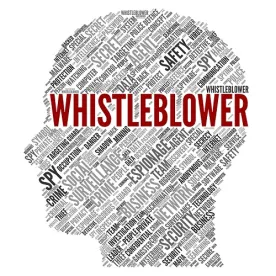On December 21, 2022, the Michigan Supreme Court held that the Whistleblowers’ Protection Act (“WPA”) protects employees who report that their employer has violated “suspected” laws in a case called Janetsky v. County of Saginaw. In a first-of-its-kind ruling, the divided Court in Janetsky concluded that an assistant county prosecutor could bring WPA claims against her supervisor who she believed illegally offered a below-minimum plea deal.
According to a bare majority, whether the supervisor’s conduct actually violated state law was not dispositive, because the WPA protects employees who report actual and suspected violations of the law. Because the assistant county prosecutor presented sufficient evidence to create a question of fact that she suspected that her supervisor violated the law, the Court reversed the lower court’s dismissal of her WPA claim.
In her partial dissent, Chief Justice Elizabeth T. Clement wrote that, whereas the WPA protects a report of a violation or a suspected violation of a law, it does not protect reporting a suspected violation of a suspected law. Chief Justice Clement explained, “In other words, while the statute accepts uncertainty—a violation need only be suspected to be reportable and protected—this should be construed as factual uncertainty, not legal uncertainty.” Accordingly, Chief Justice Clement stated that the Court’s ruling will “allow plaintiffs to receive protection for reporting violations of imaginary laws,” something that the Court had never held before and expressly declined to so hold in a 2010 decision.
Janetsky is reflective of a growing and noticeable trend to enhance legal protections for whistleblowers. As we previously reported here and here, many states have in the past year dramatically expanded whistleblower protections through legislation which not only cover a broader array of conduct, about which a would-be whistleblower can complain, but also provides for greater remedies and lightens the burden of establishing a prima facie case for a would-be whistleblower. Janetsky lightens that burden even further. Under most whistleblower retaliation statutes, an employee must establish that they have a “good faith belief,” which involves showing both that they subjectively felt wrongful conduct occurred and that such belief was objectively reasonable. After Janetsky, the WPA, which already lowered this standard to “suspected” misconduct, now also extends protection to cover a violation of a “suspected” or even imaginary law being violated. Given the dramatic expansion of whistleblower protections under the WPA and percolating around the country, employers should consult with outside counsel to ensure they are aware of the legal landscape.




 />i
/>i

